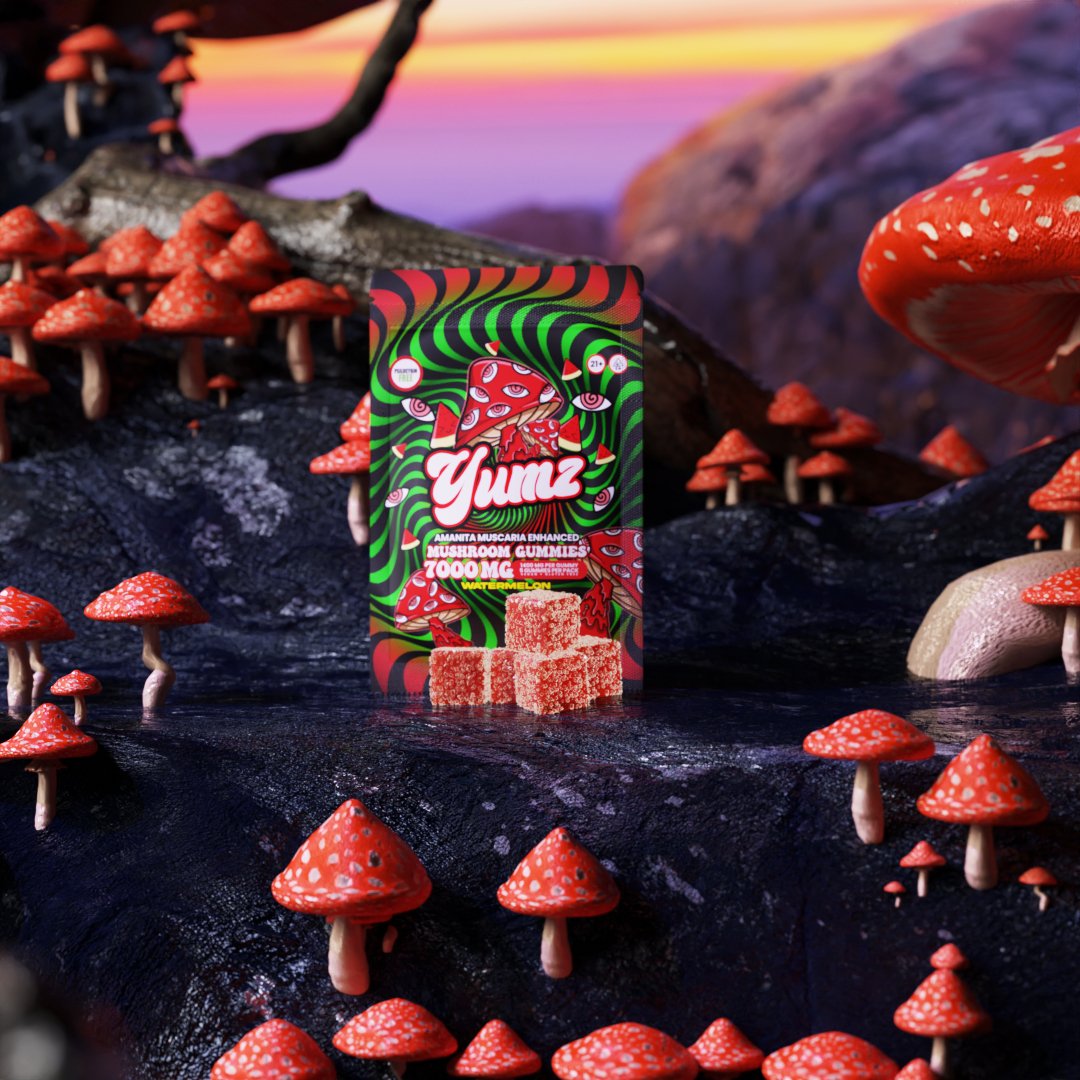
You may have the question is Amanita Muscaria Mushroom legal? Here are some legal considerations surrounding amanita muscaria mushroom.
The legal status of Amanita muscaria, commonly known as the fly agaric mushroom, varies from country to country and even within different regions. This article explores the legal considerations surrounding Amanita muscaria, including its cultivation, possession, sale, and consumption. Understanding the legal framework is crucial for individuals interested in engaging with this unique fungus.
- Global Legal Status (400 words): The legal status of Amanita muscaria mushrooms varies significantly across the globe. In some countries, such as Russia and Finland, where the mushroom holds cultural and historical significance, it is legal to possess and consume Amanita muscaria for personal use. However, regulations may exist regarding the collection and sale of wild specimens.
On the other hand, several countries have classified Amanita muscaria as a controlled or regulated substance. In these jurisdictions, the cultivation, possession, sale, or consumption of the mushroom may be subject to legal restrictions. Examples of countries that have explicitly outlawed Amanita muscaria include the United States, Canada, and several European nations.
- Regional Variations: Legal considerations surrounding Amanita muscaria mushroom can vary within countries, with regional or state-level regulations playing a role. For instance, in the United States, the legal status of Amanita muscaria varies from state to state. Some states, such as California and Oregon, have stricter regulations and consider Amanita muscaria as a controlled substance, while in others, such as Alaska, it is legal to possess and consume the mushroom.
In Australia, Amanita muscaria mushrooms are generally considered legal to possess and consume. However, regulations may exist at the state level, and it is important to research and understand the specific laws of each state within the country.
Similarly, within European countries, there may be variations in the legal status of Amanita muscaria. For example, while possession and consumption may be legal in one country, regulations may exist regarding the sale or cultivation of the mushroom.
It is important to research and understand the specific laws and regulations of the region where one resides or plans to engage with Amanita muscaria mushrooms. Local authorities, law enforcement agencies, or legal professionals can provide accurate and up-to-date information regarding the legality of the fungus in a particular jurisdiction.
- Psychoactive Compounds and Legal Considerations: Amanita muscaria mushrooms contain psychoactive compounds, including muscimol and ibotenic acid, which can induce altered states of consciousness and hallucinatory effects. The presence of these substances often plays a significant role in determining the legal status of Amanita muscaria.
In jurisdictions where the active compounds are specifically controlled or regulated, the possession, sale, or consumption of Amanita muscaria mushrooms may be prohibited. The classification of these mushrooms may be similar to other controlled substances, such as psilocybin-containing mushrooms or LSD.
However, it is important to note that the psychoactive compounds in Amanita muscaria can be volatile and are known to degrade over time or with improper storage. Consequently, some legal frameworks may consider the mushrooms non-psychoactive or their psychoactivity significantly diminished. This can result in variations in the legal classification and restrictions surrounding Amanita muscaria.
- Legal Alternatives and Preparations: Due to the legal restrictions surrounding Amanita muscaria mushrooms, individuals seeking alternative experiences or similar psychoactive effects often turn to legal alternatives. For example, certain countries allow the cultivation and consumption of psilocybin-containing mushrooms, which offer a similar psychedelic experience.
Moreover, legal
nd non-psychoactive preparations of Amanita muscaria are available. These preparations typically involve processing the mushroom to remove or minimize the psychoactive compounds while retaining its unique flavors and characteristics. This allows individuals to explore the culinary and cultural aspects of Amanita muscaria without running afoul of legal restrictions.
Legal alternatives may include Amanita muscaria products, such as extracts or tinctures, that have undergone specialized processing to remove or minimize the psychoactive properties. These products may offer a more controlled and predictable experience for those interested in the unique flavors and potential therapeutic benefits of Amanita muscaria without the psychedelic effects associated with the raw mushroom.
Additionally, non-psychoactive preparations, such as Amanita muscaria tea or tinctures, can be created by carefully controlling the preparation process. These preparations focus on extracting the flavors and potential medicinal properties of the mushroom while minimizing the presence of psychoactive compounds.
It is important to note that the legality of these alternatives may also vary depending on the jurisdiction. While some countries may allow the sale and consumption of Amanita muscaria extracts or non-psychoactive preparations, others may have regulations in place that govern the sale and marketing of such products.
- Legal Considerations for Cultivation: The cultivation of Amanita muscaria mushrooms for personal use can also raise legal considerations. In many countries, the cultivation of psychoactive mushrooms, including Amanita muscaria, is considered illegal.
However, some jurisdictions have allowed the cultivation of certain species of mushrooms for personal use or research purposes. It is crucial to research and understand the specific laws and regulations regarding mushroom cultivation in the region to ensure compliance with the legal framework.
Moreover, the cultivation of Amanita muscaria mushrooms can present challenges due to their specific growing requirements and symbiotic relationship with certain tree species. This further emphasizes the importance of obtaining accurate information and guidance from experienced cultivators or mycologists to ensure safe and responsible cultivation practices.
- Legal Considerations for Research and Educational Purposes: Engaging with Amanita muscaria mushrooms for research or educational purposes may also require compliance with legal regulations. Many countries have restrictions on the study and handling of psychoactive substances, including mushrooms containing psychoactive compounds.
In some cases, obtaining the necessary permits, licenses, or approvals from relevant authorities may be required for conducting research, experiments, or educational activities involving Amanita muscaria mushrooms. It is essential to familiarize oneself with the specific legal requirements and seek appropriate authorization to ensure compliance with the law.
Conclusion: The legal status of Amanita muscaria mushrooms is subject to significant variation across countries and regions. Understanding the legal considerations surrounding the cultivation, possession, sale, and consumption of Amanita muscaria is essential for individuals interested in engaging with this unique fungus.
Researching and adhering to the specific laws and regulations of the jurisdiction is crucial to ensure compliance with the legal framework. Seeking accurate information from local authorities, legal professionals, or knowledgeable sources can provide guidance regarding the legality of Amanita muscaria mushrooms in a particular area.
Legal alternatives and non-psychoactive preparations offer individuals the opportunity to explore the culinary and cultural aspects of Amanita muscaria while complying with legal restrictions. Responsible engagement with Amanita muscaria mushrooms, whether for culinary, research, or educational purposes, ensures a safe and legal experience for all enthusiasts.




